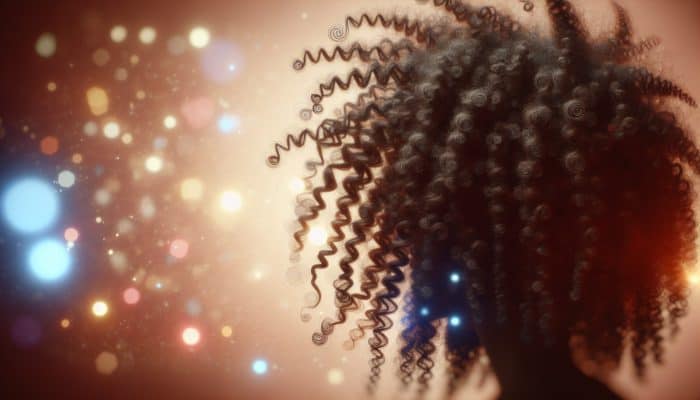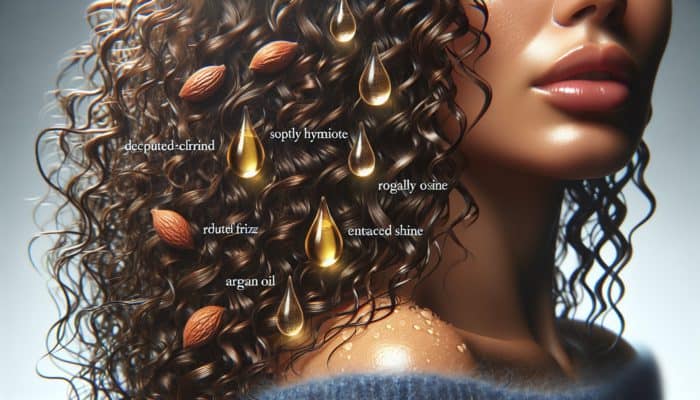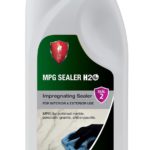Discover Proven Techniques for Luxurious Coily Hair Care and Maintenance
Understanding the Unique Attributes of Coily Hair for Optimal Care

Coily hair possesses a distinctive texture renowned for its intricate structure, exemplified by tightly wound curls or spirals that provide both visual allure and reflect the unique character of the individual. This remarkable texture, while visually striking, brings about particular challenges requiring diligent attention, including heightened vulnerability to dryness and frizz if not properly cared for. The compact curl formation creates an impediment, preventing natural oils generated by the scalp from travelling smoothly along the hair shaft, often resulting in strands that may feel coarse or brittle. Thus, attaining the desired softness typically associated with healthy hair can prove to be quite the challenge for those with coily locks.
Gaining a deeper understanding of the scientific principles behind coily hair is essential for effective maintenance. The curl pattern, primarily dictated by the shape of the hair follicle, indicates that oval-shaped follicles produce curlier strands, while round follicles yield straighter hair. This unique structure adds to the overall appeal of coily hair yet complicates routine care. Recognising these critical factors is vital for anyone looking to grasp how to treat coily hair for enhanced softness effectively.
Emphasising the Essential Role of Hydration in Coily Hair Care
Moisture stands as the cornerstone of coily hair care; without sufficient hydration, strands can quickly devolve into a state of dullness and brittleness, jeopardising their overall health and vitality. The moisture levels maintained in coily hair directly affect its elasticity, a crucial factor in minimising breakage and encouraging robust hair growth. When coily hair experiences a lack of moisture, it becomes increasingly fragile, leading to the emergence of split ends and stunted growth.
Integrating a thorough hydration routine is imperative for achieving and sustaining soft, healthy coily hair. This involves not only the application of hydrating products externally but also ensuring adequate internal hydration by consuming a sufficient amount of water daily. The correlation between water intake and hair vitality is substantiated by numerous studies indicating that hydration significantly affects hair texture and overall wellness. For those eager to discover how to treat coily hair for improved softness, prioritising moisture retention can lead to remarkable transformations.
Customising Care by Identifying Your Unique Hair Type
Determining whether your coily hair falls into category type 3 or type 4 is crucial, as this classification significantly influences your hydration strategy. Type 3 hair typically exhibits looser curls that maintain a defined pattern, while type 4 hair is recognised for its tighter, more zigzag curls that frequently encounter dryness. Recognising your specific hair type empowers you to tailor your products and techniques to effectively meet your unique needs.
For instance, individuals with type 4 hair may find that richer creams and oils prove more effective in combating dryness, while those with type 3 hair might achieve superior results with lighter gels and custards. Understanding these distinctions is essential for anyone navigating the complexities of how to treat coily hair for enhanced softness. By personalising your approach, you can not only enhance the texture of your hair but also promote its overall health, resulting in a more manageable and vibrant appearance.
Choosing the Right Hydrating Shampoos and Conditioners for Optimal Care

Identifying the Most Suitable Shampoo for Coily Hair
Choosing the appropriate shampoo is fundamental to establishing an effective hair care regimen, particularly for those with coily hair. It is highly advisable to select shampoos enriched with hydrating ingredients such as aloe vera and glycerin, both celebrated for their gentle cleansing properties that do not strip hair of its natural oils. Unlike conventional shampoos that may contain harsh sulfates, hydrating shampoos are specifically formulated to uphold moisture levels while efficiently eliminating dirt and product buildup.
The selection of shampoo can profoundly affect the success of your overall hair care routine; a well-crafted hydrating shampoo creates the foundation for achieving enhanced softness. For individuals keen to learn how to treat coily hair for optimal softness, choosing the right cleansing product can make a significant difference. Always remember to follow up with a conditioner that complements your shampoo, thereby ensuring a comprehensive and effective hydration strategy.
The Remarkable Benefits of Deep Conditioning Treatments for Coily Hair
Deep conditioning treatments are a vital element of any coily hair care regimen. These intensive treatments penetrate deeply into the hair shaft, replenishing lost moisture and rejuvenating the strands from within. As a result, the hair becomes softer and more manageable, effectively combating frizz and dryness. Regular deep conditioning can also enhance elasticity, which is crucial for preventing breakage and maintaining hair length.
Utilising a deep conditioner rich in hydrating ingredients, such as shea butter or <a href="https://amitys.co.uk/coconut-oil-for-hair-a-secret-weapon-for-healthy-hair/">coconut oil</a>, can dramatically transform the texture of coily hair. The frequency of deep conditioning should be tailored to your hair’s specific needs—those with extremely dry or damaged hair might benefit from weekly treatments, while others may prefer bi-weekly applications. By incorporating deep conditioning into your regimen, you can unlock the secrets of how to treat coily hair for enhanced softness, ultimately revealing its potential for vibrancy and health.
The Indispensable Role of Leave-In Conditioners in Effective Hair Care

Leave-in conditioners are essential for maintaining hydration throughout the day. These lightweight formulations are specifically designed for application post-wash and can significantly reduce frizz while enhancing softness. They act as a protective barrier, delivering consistent moisture and nourishment to coily hair.
For those striving to maximise hydration, a high-quality leave-in conditioner can be transformative. Seek out products featuring ingredients like jojoba oil or argan oil, both renowned for their exceptional moisturising properties. When paired with an appropriate styling routine, leave-in conditioners can help you achieve the desired softness and manageability emblematic of healthy coily hair. Understanding and implementing this aspect of care is vital to mastering how to treat coily hair for optimal softness.
Establishing a Consistent Hydration Routine for Coily Hair Maintenance
Regular hydration through shampoos and conditioners is vital for the overall health of coily hair. The consistent use of hydrating products prevents dryness and breakage, promoting a more vibrant appearance. Maintaining a regular hydration schedule not only supports moisture retention but also significantly enhances the natural shine and softness of the hair.
For optimal results, consider integrating a weekly or bi-weekly treatment focused on rejuvenating hydration. This could involve masks specifically formulated for coily hair or treatments rich in nutrients that complement your existing regimen. Committing to consistent hydration routines can lead to remarkable improvements in the overall texture and manageability of coily hair, making the journey to discovering how to treat coily hair for enhanced softness much more enjoyable.
Adopting Tried-and-True Moisturising Techniques for Coily Hair
Mastering the L.O.C. Method for Maximum Moisture Retention
The L.O.C. method, which stands for Liquid, Oil, and Cream, is a proven technique for sealing in moisture in coily hair. This layering method ensures that each product serves its specific function, ultimately contributing to softer, more hydrated strands. The initial step involves applying a liquid product—this could be water or a hydrating spray—to thoroughly saturate the hair. Following this, an oil is applied to lock in the moisture, and finally, a cream is used to provide additional definition and hydration.
Utilising the L.O.C. method can yield substantial benefits for those eager to deepen their understanding of how to treat coily hair for enhanced softness. Each step plays an integral role in ensuring moisture retention while preventing frizz. The effectiveness of this method may vary based on individual hair types, so some experimentation may be necessary to find the optimal combination that works best for you.
Embracing Protective Styling for Healthier Coily Hair
Protective styling is an invaluable strategy for sustaining the health and integrity of coily hair. Styles such as braids, twists, and updos not only provide aesthetic appeal but also serve functional purposes. These styles protect the ends of the hair, which are often the most vulnerable to damage and dryness. By retaining moisture within the strands, protective styles contribute to keeping coily hair soft and healthy.
Incorporating protective styles into your hair care routine can also minimise manipulation—an often-overlooked cause of breakage in coily hair. Furthermore, styles that tuck away the ends can be maintained for extended periods, allowing deep conditioning treatments to work their magic while the hair remains safeguarded. For anyone eager to discover how to treat coily hair for enhanced softness, adopting protective styles can be an astute strategy for achieving and maintaining that sought-after softness.
The Importance of Regular Moisturising Practices in Coily Hair Care
Regularly applying a lightweight moisturiser can be a transformative practice for coily hair. This daily routine helps combat the inherent dryness often associated with coily textures. By incorporating a light, hydrating product into your regimen, you can maintain softness throughout the day, reducing frizz and promoting a more defined curl pattern.
Choosing the right type of moisturiser is paramount—look for those that contain hydrating components like aloe vera or glycerin. These nourishing ingredients not only provide essential moisture but also assist in locking in hydration without weighing down your curls. Implementing a daily moisturising routine can be a pivotal factor in mastering how to treat coily hair for enhanced softness, allowing for a more vibrant, healthy appearance.
Incorporating Deep Conditioning Treatments into Your Routine for Enhanced Hair Health
Deep conditioning treatments should be viewed as a staple in the hair care regimen for coily hair. These intensive treatments penetrate the hair shaft, delivering a powerful boost of moisture that can dramatically improve the hair’s texture. Regular deep conditioning can restore moisture levels, fortify the hair, and enhance its natural softness and manageability.
Selecting the appropriate deep conditioner is vital; seek products that are rich in natural oils and butters, such as shea butter or coconut oil, both recognised for their nourishing properties. The frequency of deep conditioning should be personalised according to your hair’s condition—dependent on its needs, treatments can be performed weekly or even more frequently. By committing to this essential practice, individuals can unlock the secrets of how to treat coily hair for enhanced softness, leading to healthier, more luxurious-looking hair.
Maximising the Benefits of Natural Oils and Butters for Coily Hair Care
Uncovering the Hydrating Properties of Coconut Oil for Coily Hair
Coconut oil is widely revered for its exceptional capacity to penetrate the hair shaft, delivering profound hydration and minimising protein loss. This unique characteristic renders it particularly advantageous for coily hair, which frequently grapples with moisture retention challenges. Regular application of coconut oil not only hydrates the hair but also contributes to a softer texture, significantly enhancing overall manageability.
Additionally, coconut oil is abundant in fatty acids, which can fortify the hair and help prevent breakage. Its antimicrobial properties also make it an excellent choice for maintaining a healthy scalp, thereby promoting robust hair growth. Those eager to comprehend how to treat coily hair for enhanced softness will find coconut oil to be an invaluable addition to their hair care arsenal, yielding transformative hydration and nourishment.
Harnessing the Benefits of Shea Butter for Exceptional Coily Hair Care
Shea butter is a powerhouse ingredient celebrated for its rich vitamin content and fatty acids that nourish and soften coily hair. This natural emollient is particularly effective in sealing moisture and enhancing shine, making it a popular choice among those with coily textures. Its creamy consistency facilitates easy application, ensuring that every strand receives optimal hydration.
Incorporating shea butter into your hair care routine can lead to remarkable enhancements in softness, as it penetrates deeply into the hair shaft while providing a protective barrier against environmental stressors. It can also help to reduce frizz and enhance curl definition, making it an ideal companion for anyone aiming to master how to treat coily hair for enhanced softness effectively.
Exploring Other Beneficial Oils for Superior Coily Hair Care
Oils such as argan and jojoba also play a significant role in boosting the softness of coily hair. Argan oil, often referred to as “liquid gold”, is renowned for its high levels of antioxidants and essential fatty acids that nourish and repair damaged hair. Jojoba oil, which closely resembles the natural sebum produced by the scalp, acts as an excellent moisturiser that aids in moisture retention.
Incorporating these oils into your hair care routine can provide additional moisture and nourishment, resulting in improved softness and manageability. By diversifying the oils used, individuals can experiment with various combinations that best suit their unique hair type and needs, making strides in their quest to learn how to treat coily hair for enhanced softness.
Revealing the Benefits of Olive Oil for Coily Hair Hydration
Olive oil is abundant in antioxidants and vitamins, making it a superb choice for moisturising and repairing damaged coily hair. Its lightweight nature allows it to penetrate the hair shaft effortlessly, providing hydration without leaving a greasy residue. This makes olive oil suitable for daily application, assisting in maintaining softness and preventing breakage.
In addition to its hydrating benefits, olive oil can also enhance the overall health of coily hair by nurturing the scalp and reducing inflammation. This holistic approach to hair care ensures that individuals focus not only on the strands but also on the scalp’s health. Those aspiring to discover how to treat coily hair for enhanced softness should consider incorporating olive oil as a staple in their routine for optimal benefits.
Utilising Mango Butter for Superior Moisture Retention in Coily Hair
Mango butter provides intense hydration and is rich in nutrients that promote healthy, soft coily hair. Renowned for its emollient properties, mango butter assists in sealing in moisture while enhancing the hair’s natural shine. Its rich texture makes it ideal for deep conditioning treatments or as a leave-in product to sustain softness throughout the day.
Integrating mango butter into your hair care regimen can lead to significant improvements in the texture of coily hair, making it a fantastic option for those looking to master the art of how to treat coily hair for enhanced softness. With regular use, you may discover not only enhanced softness but also improved overall hair health and vibrancy.
Avoiding Common Mistakes in Coily Hair Care
Recognising the Dangers of Over-Washing Coily Hair
One of the most common mistakes made by individuals with coily hair is over-washing their tresses. Frequent washing can strip coily hair of its natural oils, leading to excessive dryness and diminished softness. The unique structure of coily hair inherently inhibits moisture retention, making it crucial to preserve the natural oils produced by the scalp.
To address this issue, it is advisable to wash coily hair no more than once or twice a week, depending on your lifestyle and the specific needs of your hair. When washing, always opt for a gentle, hydrating shampoo that cleanses without stripping essential moisture. Understanding the delicate balance between cleanliness and moisture retention is fundamental for effectively mastering how to treat coily hair for enhanced softness.
Preventing Heat Damage to Maintain Healthier Coily Hair
Excessive use of heat styling tools can lead to severe damage for coily hair, rendering it brittle and less soft. High temperatures can strip away moisture and vital nutrients, causing the hair cuticles to lift and become porous. This results in increased frizz and diminished softness, which can be disheartening for those who cherish their coily locks.
To avoid heat damage, consider embracing your natural texture more frequently and limit the use of heat styling tools. When you do choose to use heat, always apply a high-quality heat protectant to shield your strands. Learning to embrace low-heat or heat-free styling options can significantly assist in your efforts to discover how to treat coily hair for enhanced softness, allowing your natural beauty to shine through.
Avoiding Harsh Chemicals in Hair Products for Healthier Coily Hair
Harsh chemicals often found in numerous commercial hair products can wreak havoc on coily hair, stripping away moisture and inducing breakage. Ingredients such as sulfates and alcohol should be avoided, as they can disrupt the hair’s natural moisture balance.
When selecting products, it is advisable to choose those formulated specifically for coily or curly hair, which are often free from harmful chemicals and enriched with hydrating ingredients. This mindful approach can significantly enhance your understanding of how to treat coily hair for enhanced softness, paving the way for a healthier and more manageable hair type.
The Intricate Connection Between Diet and Hair Hydration
The Vital Importance of Sufficient Water Intake for Hair Wellness
Internal hydration is as crucial as external treatments when it comes to maintaining the softness of coily hair. Adequate water consumption plays a fundamental role in overall health, directly impacting hair quality. When the body is properly hydrated, this is reflected in the hair, resulting in softer and more resilient strands.
To ensure optimal hydration, aim to consume at least 2 litres of water daily, adjusting according to your activity levels and environmental conditions. By prioritising water intake, individuals can take significant steps towards mastering how to treat coily hair for enhanced softness, culminating in healthier and more vibrant locks.
Essential Nutrients for Promoting Healthy Hair
A diet abundant in omega-3 fatty acids and vitamins A, C, and E can greatly enhance the softness and health of coily hair. These essential nutrients work synergistically to nourish hair follicles and improve moisture retention. Incorporating foods such as salmon, avocados, nuts, and leafy greens should be staples in the diet of anyone aiming to improve their hair health.
Including a variety of colourful fruits and vegetables not only provides crucial vitamins but also aids in overall bodily hydration. Recognising the vital connection between diet and hair quality is essential for those who wish to learn how to treat coily hair for enhanced softness, emphasising the importance of a holistic approach to hair care.
Exploring the Role of Supplements in Hair Health Enhancement
While a balanced diet is vital, supplements can also contribute to promoting healthy coily hair. For instance, biotin is often recommended for improving hair thickness and strength. Additionally, omega-3 supplements can offer extra hydration benefits, particularly for individuals who may struggle to obtain sufficient amounts from dietary sources.
Before initiating any supplement regimen, it is prudent to consult with a healthcare professional to ensure it aligns with your health needs. By incorporating beneficial supplements, individuals can further enhance their understanding of how to treat coily hair for enhanced softness, paving the way for improved hair health.
Recognising the Impact of Dehydration on Hair Quality
A lack of hydration can lead to dry, brittle coily hair, significantly increasing the risk of breakage and dullness. When the body is dehydrated, it prioritises essential functions, often compromising hair quality. Recognising this connection underscores the importance of maintaining proper hydration levels for overall hair vitality.
To combat the effects of dehydration, it is essential to integrate more hydrating foods into your diet, alongside increasing water intake. Acknowledging the detrimental impact of dehydration on hair can empower individuals to take proactive steps in their hair care journey, especially when striving to learn how to treat coily hair for enhanced softness.
Identifying Foods to Avoid for Optimal Hair Health
Processed foods and high sugar intake can adversely affect the moisture and overall health of coily hair. These foods can lead to inflammation and poor circulation, both of which can hinder hair growth and vitality. Instead, focus on whole, nutrient-dense foods that support hair health and hydration.
Opt for a diet rich in vibrant fruits, vegetables, and lean proteins, providing the essential vitamins and minerals necessary for thriving coily hair. By being mindful of dietary choices, individuals can significantly enhance their understanding of how to treat coily hair for enhanced softness, fostering a healthier environment for their hair.
Addressing Common Questions Regarding Coily Hair Care
What are the most effective products to use for coily hair?
Hydrating shampoos and conditioners that contain ingredients like aloe vera, glycerin, and natural oils are ideal for coily hair. Look for products specifically formulated for curly or coily textures to ensure optimal results.
How often should I wash my coily hair for the best results?
Aim to wash coily hair no more than once or twice a week to prevent stripping natural oils. This practice helps maintain moisture levels and softness, which are crucial for the health of coily hair.
Can my diet genuinely influence the softness of my coily hair?
Yes, a diet rich in vitamins A, C, E, and omega-3 fatty acids can significantly enhance the softness and health of coily hair, supporting its overall vitality and appearance.
What are effective methods to reduce frizz in coily hair?
Utilising leave-in conditioners, oils, and the L.O.C. method can be very effective in minimising frizz. Additionally, protective hairstyles help retain moisture, promoting softer hair.
Is heat styling harmful to coily hair?
Excessive heat styling can lead to considerable damage and dryness. It is advisable to limit the use of heat tools and always apply a heat protectant when styling to prevent harm.
What exactly does the L.O.C. method entail?
The L.O.C. method refers to the layering technique involving Liquid, Oil, and Cream. This method effectively locks in moisture and maintains softness in coily hair.
Are natural oils beneficial for coily hair care?
Absolutely! Oils such as coconut, olive, and jojoba are known for providing deep hydration, reducing frizz, and enhancing softness in coily hair.
How frequently should I deep condition my coily hair?
Deep conditioning should ideally be done weekly or bi-weekly, depending on the specific needs of your hair. This practice restores moisture and improves manageability, contributing to healthier hair.
Can I use regular shampoo on coily hair without complications?
It is best to avoid regular shampoos containing sulfates. Instead, opt for hydrating shampoos specifically designed for coily or curly hair to achieve the best results.
What dietary choices should I avoid for optimal hair health?
Processed foods and items high in sugar can negatively affect hair health. Focus on whole foods rich in nutrients to support your hair’s well-being and hydration.
Connect with us on Facebook!
The Article: How to Treat Coily Hair for Softness: A Guide to Hydration appeared first on Amitys Hair Salon.
The Article Treat Coily Hair for Softness: Essential Hydration Tips Was Found On https://limitsofstrategy.com
The Article Coily Hair: Essential Tips for Softness and Hydration found first on https://electroquench.com

